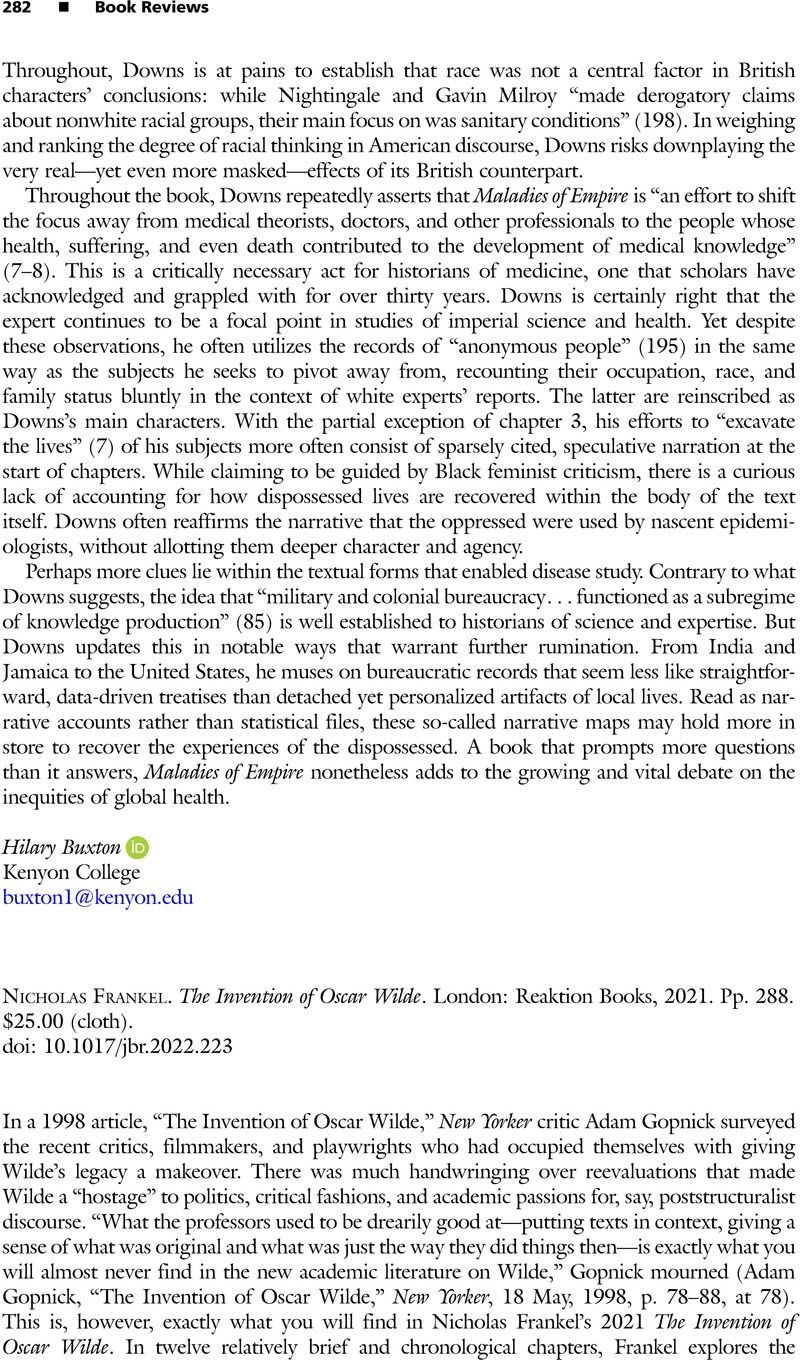No CrossRef data available.
Article contents
Nicholas Frankel. The Invention of Oscar Wilde. London: Reaktion Books, 2021. Pp. 288. $25.00 (cloth).
Review products
Nicholas Frankel. The Invention of Oscar Wilde. London: Reaktion Books, 2021. Pp. 288. $25.00 (cloth).
Published online by Cambridge University Press: 03 March 2023
Abstract
An abstract is not available for this content so a preview has been provided. Please use the Get access link above for information on how to access this content.

- Type
- Book Review
- Information
- Copyright
- Copyright © The Author(s), 2023. published by Cambridge University Press on behalf of the North American Conference on British Studies



